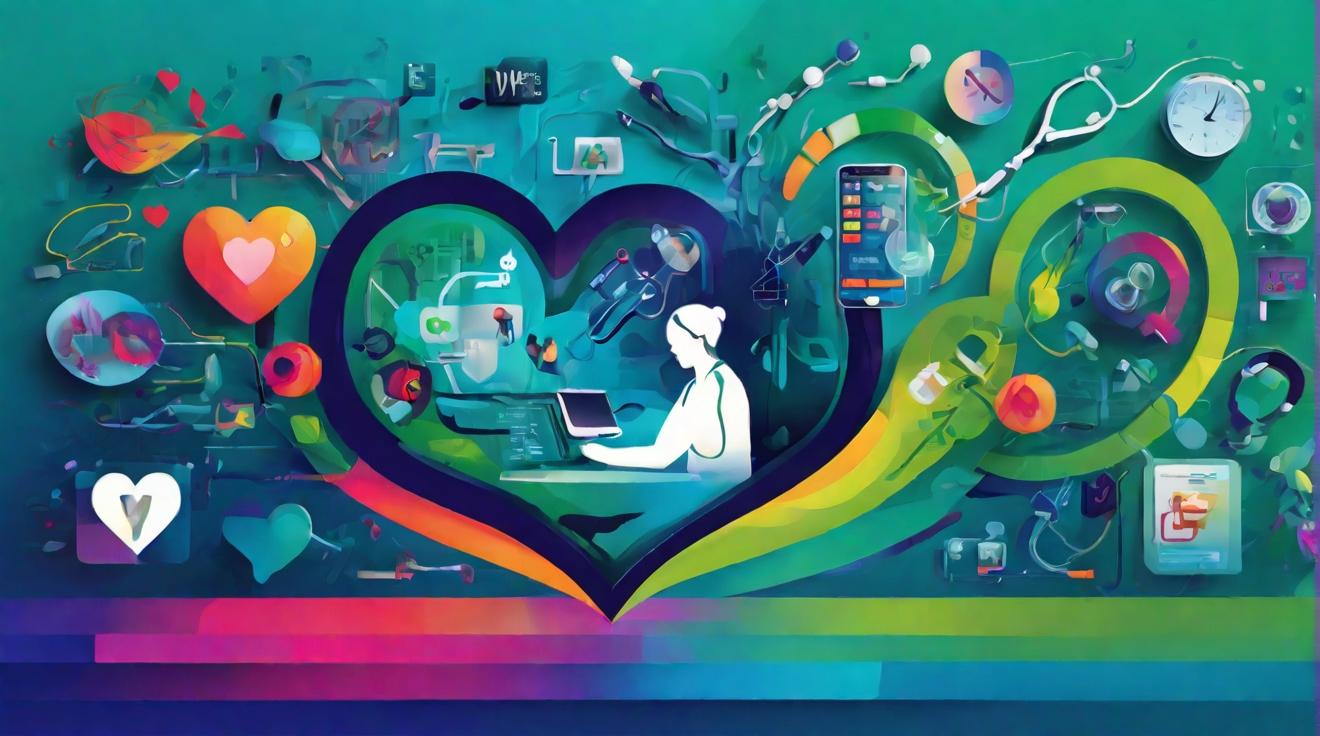Digital Remote Monitoring Technology in Care Homes Reduces Hospital Admissions, Study Finds
A new study conducted by the Health Data Research UK (HDR UK) Better Care programme has revealed that digital remote monitoring technology in care homes has led to a significant reduction in hospital A&E attendances and emergency admissions. The study, published in Age and Ageing, the official journal of the British Geriatrics Society, highlights the positive impact of a smartphone app developed by Health Call, an NHS-owned digital company.
In the UK, where over 400,000 people reside in care homes, the risk of emergency healthcare requirements is particularly high, especially during the winter months. However, the use of remote health monitoring through the Health Call app has proven to be a game-changer. The app enables care home staff to monitor and manage the long-term health of residents by recording daily observations. This data helps doctors and other clinicians review the resident’s condition and provide remote care guidance.
The research, a collaboration between the universities of Sheffield, Durham, Lancaster, and Newcastle, examined the benefits of the Health Call app in 8,702 residents from 118 care homes across the North East of England between 2018 and 2021. The findings showed a remarkable 11% reduction in A&E attendances and a staggering 25% decline in unplanned emergency admissions.
The app has not only improved care for older individuals but has also proved instrumental in reducing the strain on hospitals, thereby benefiting the entire healthcare system. Care home staff praised the app, stating that it enhanced their ability to identify potential deteriorations early and effectively manage illnesses before hospitalization became necessary. The study hopes that implementing such technologies will improve future communication between health service providers, ultimately benefiting patients and the NHS alike.
In addition to the improved health outcomes, the study also conducted a cost analysis. The results revealed that the use of the Health Call app in care homes led to a cost reduction of £57 per resident in 2018, which increased to £113 in 2021. This highlights the potential for significant savings and emphasizes the value of integrating routine health data into research beyond its use in patient care delivery.
The app facilitates a structured approach for clinical advice management in care homes. Staff members are trained to record vital signs and use the National Early Warning Score 2 (NEWS2) to identify at-risk patients. They can also upload descriptions of a resident’s condition using the Situation, Background, Assessment, Recommendation (SBAR) communication method.
This research showcases the importance of using routinely collected data to improve health outcomes, underscoring the opportunities presented by investments in secure NHS data environments. The findings of this study pave the way for further advancements in remote health monitoring technology, ultimately benefiting both caregivers and patients.
Analyst comment
Positive news: Digital remote monitoring technology in care homes has led to a significant reduction in hospital admissions, according to a study by the Health Data Research UK Better Care programme. The smartphone app developed by Health Call allows care home staff to monitor residents’ health, resulting in an 11% decrease in A&E attendances and a 25% decline in emergency admissions. The app also led to cost savings per resident. This technology improves care for older individuals, reduces strain on hospitals, and enhances communication between health service providers. Market outlook: This positive study highlights the potential for further advancements in remote health monitoring technology and presents opportunities for investments in this sector.













